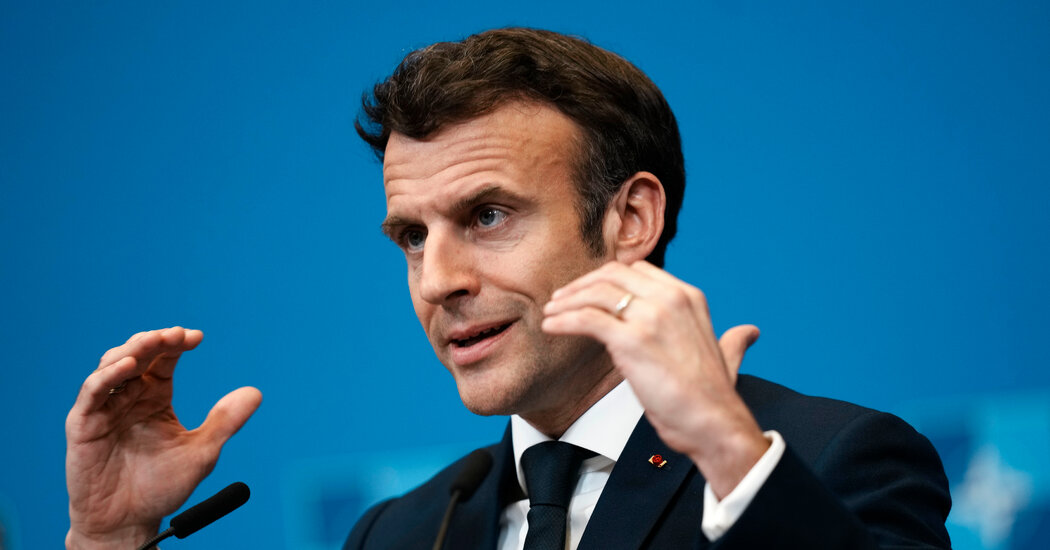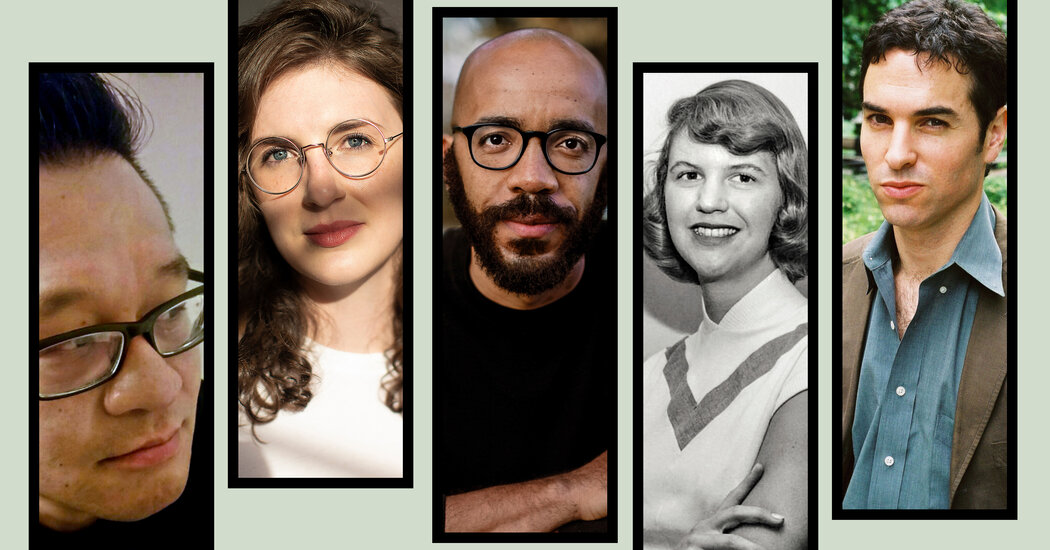
PARIS — Nobody can accuse President Emmanuel Macron of stinting on efforts to avert, defuse or stop Russia’s war in Ukraine. He has clocked 17 phone conversations with President Vladimir V. Putin in the past four months, one personal meeting in Moscow and so many hours of discussion with his own aides that he has had scant time for the small matter of a presidential election in less than two weeks.
In the same period, he has spoken 25 times to President Volodymyr Zelensky of Ukraine, and met with him in Kyiv and Brussels. On Feb. 25, he spoke twice in a single day to the Ukrainian leader, something he also did with Mr. Putin on Feb 11. All with a view, Mr. Macron says, “to securing a cease-fire and then the total withdrawal of troops.”
If diplomacy is measured by perseverance, Mr. Macron is a supreme diplomat. If it is measured by effective realism, the verdict appears less favorable. Up to now, on the face of it, he has achieved very little through his 42 calls and three meetings. The war is into its second month with an untold number of dead. More than 3.7 million Ukrainian refugees have fled westward.
Mr. Zelensky, to judge by a recent interview in The Economist, has been underwhelmed. Asked about Mr. Macron’s statement at a NATO meeting last week that delivering tanks to Ukraine represented a red line not be crossed, Mr. Zelensky said France took this position because “they are afraid of Russia. And that’s it.”
In relations with Russia, it is less fear that seems to inhabit Mr. Macron than a kind of romantic fascination with the country and its culture, as well as an intellectual conviction that Europe will not be stable until Russia is integrated into some new security architecture that reflects the Cold War’s end.
Mr. Macron returned to the theme of reimagining European security in an interview with France 3 TV on Sunday: “The United States and Russia structured the world during the Cold War. We are no longer in the Cold War,” he said. It is Europeans, not Americans, who “live beside Russia,” and so “we need a defense policy and we need to define a security architecture for ourselves and not delegate that task.”
In some ways, the war in Ukraine has validated Mr. Macron’s long-held convictions. Germany in the past several weeks has effectively shifted from a pacifist postwar power to one prepared to spend heavily on defense to revamp its armed forces. That in turn means that a pet phrase of Mr. Macron’s — “Europe puissance,” or “European power” — is no longer a pipe dream. Europe will look different if Germany truly stiffens its military backbone.
The French people appear to have few misgivings about Mr. Macron’s diplomatic striving, despite the fact that he has devoted little time to the campaign and has refused to debate other candidates.
They see, rather, a leader assuming his responsibilities on the world stage. France currently holds the rotating presidency of the 27-member European Union, giving Mr. Macron a double reason to lead Europe’s diplomatic efforts — a role the president has said falls naturally to him given Britain’s exit from the European Union and Germany’s leadership transition.
Although he has fallen to about 28.5 percent of the vote in the most recent polls, down from 30 percent, Mr. Macron is still four percentage points up on his prewar average. His main rival, Marine Le Pen of the hard-right National Rally, has surged of late to 20 percent, up 2.5 percent in a week, mainly at the expense of the upstart hard-right candidate, Eric Zemmour, who is now at 11.5 percent.
The election campaign has been curiously low-key, absent Mr. Macron’s participation in debates, with no major policy theme and a widespread perception that the incumbent has victory secured. On the other hand, the process has been so opaque that Philippe Labro, an author and a longtime observer of French politics, said in a brief conversation that “a surprise may still be lurking.”
In all his diplomatic efforts, Mr. Macron has consulted closely with President Biden. There has been little daylight between them, with the French president appearing to play good cop to Mr. Biden’s bad cop in dealing with Mr. Putin.
But Mr. Biden’s improvised comment about Mr. Putin at the end of a speech this weekend in Poland — “For God’s sake, this man cannot remain in power” — appeared to open up some discord.
Russia-Ukraine War: Key Developments
“I wouldn’t use this sort of words,” Mr. Macron said in the Sunday interview, insisting that he still hoped to secure a cease-fire and the withdrawal of Russian troops. “If we want to do this, we must not escalate, either in words or actions.”
Mr. Macron has been tough at times with Mr. Putin. After a March 3 call when Mr. Putin described Mr. Zelensky’s government as “Nazis,” Mr. Macron replied that this was “lies.” He continued: “Either you are telling yourself stories, or you’re looking for a pretext. What you’re saying does not conform with reality.”
At other times, Mr. Macron has appeared to have difficulty confronting reality himself. As a former K.G.B. officer, Mr. Putin was trained in the art of seduction, in persuading his interlocutors that he liked them, so that they would reveal themselves more completely. Mr. Macron is also a man who likes to think his charm will win people over. He tried, for example, to get close to President Trump to secure concessions that were never forthcoming.
On the plane back from Moscow last month, the French president said he had secured promises from Mr. Putin that Russian troops would be withdrawn from Belarus after a planned military exercise, that nuclear weapons would never be positioned there, and that Russia would engage seriously with the Minsk peace process aimed at resolving the conflict over two breakaway regions in eastern Ukraine.
Two weeks later, Mr. Putin recognized the independence of the breakaway regions, using an “invitation” from them as a pretext for an invasion of Ukraine that he called “a special military operation.” Russian troops were not withdrawn from Belarus.
“Yes, there was duplicity,” Mr. Macron said on Feb. 24, the day of the invasion.
Yet he and Mr. Putin have spoken seven times since then.




